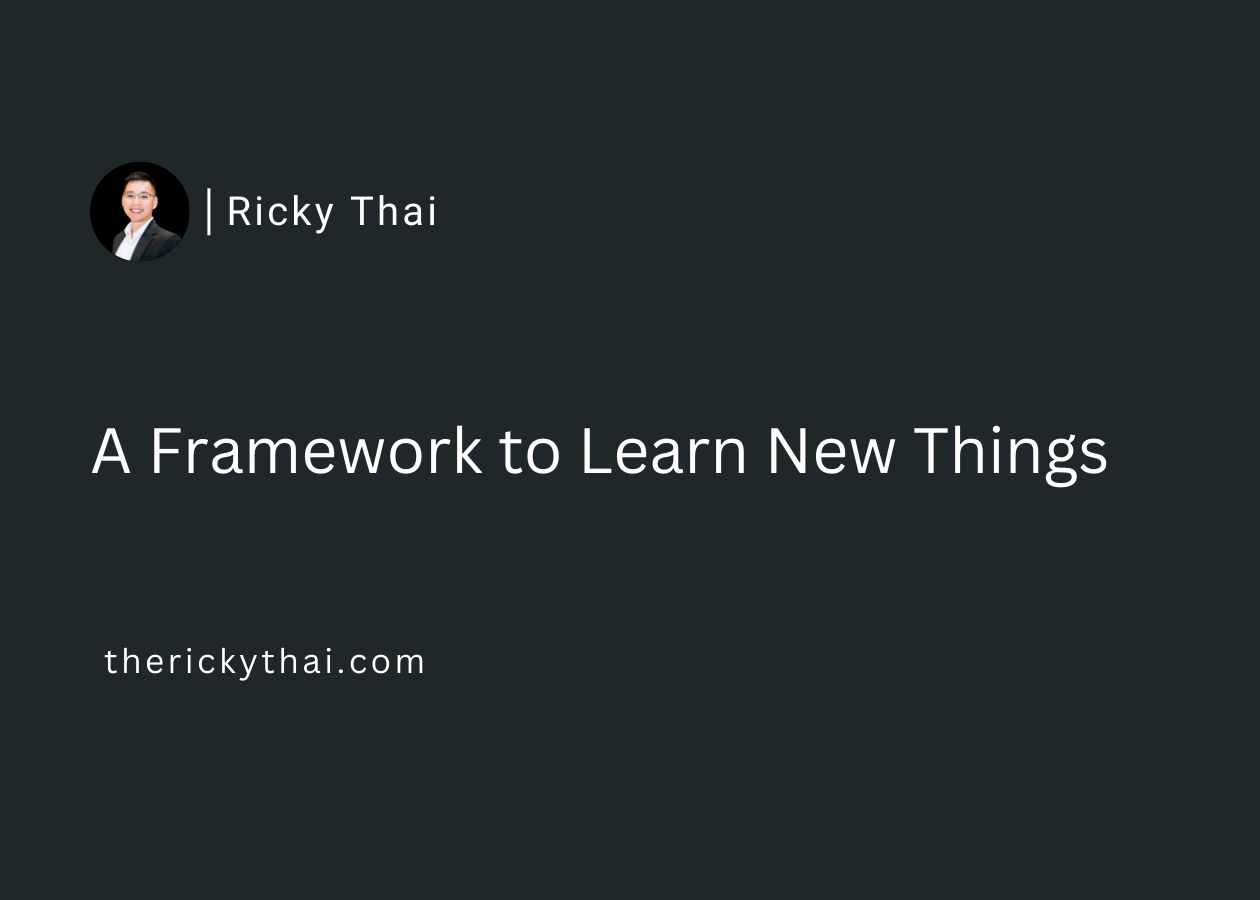A Framework to Learn New Things
I want to share a framework that I often follow whenever I am learning something new. It could be a new subject, skill, or habit that I find useful.
I call it the Listen - Read - Do Framework.
Listen to Know
Listen when you hear something interesting. It could come from a conversation with a friend, a podcast you follow, a class, a board meeting—anywhere your ear picks up sound.
There are different levels of listening: beginner, intermediate, and master. To me, a beginner listener is someone who listens to understand but lacks the skill to ask in-depth questions. They still listen, but they struggle to ask the kind of questions that lead to deeper knowledge.
An intermediate listener knows how to listen and ask questions, which helps them get to the core of the subject faster than the beginner.
An expert listener has both of these skills, but what sets them apart is their genuine curiosity. They don’t care whether the other person listens back or not. Their curiosity drives genuine interest, and they keep asking questions to unlock deeper levels of understanding.
Read to Think
Reading helps you learn a subject in depth. The advantage of reading is that it presents ideas clearly in text. If the author did a great job, they shorten the time it takes you to move from curiosity to understanding. Reading sharpens your thinking by helping you comprehend knowledge better.
Without text, you may have an idea of a subject, but not in the correct order. It’s like seeing the alphabet as DCJTU instead of ABCDE. With the right order, your understanding of the subject improves, making it easier to apply it to your life.
Do to Understand
No matter how well you know something, to the point that you say you understand it. Your understanding is “about” the subject, but not to the point of doing the subject.
It’s like a subject researcher (nothing against them, and I love research); what researchers do is they research the subject to the point that they know “about” the subject in depth, but to do, synthesize, or create, you have to take action. Through action, you test your assumptions, reasoning, and understanding. You will fail on many occasions and succeed in a few. That’s why when you take action, you change your behavior. You force yourself to act, and through failure, you adjust your approach until your actions bring results.
You listen to know, read to think, and do to understand.


